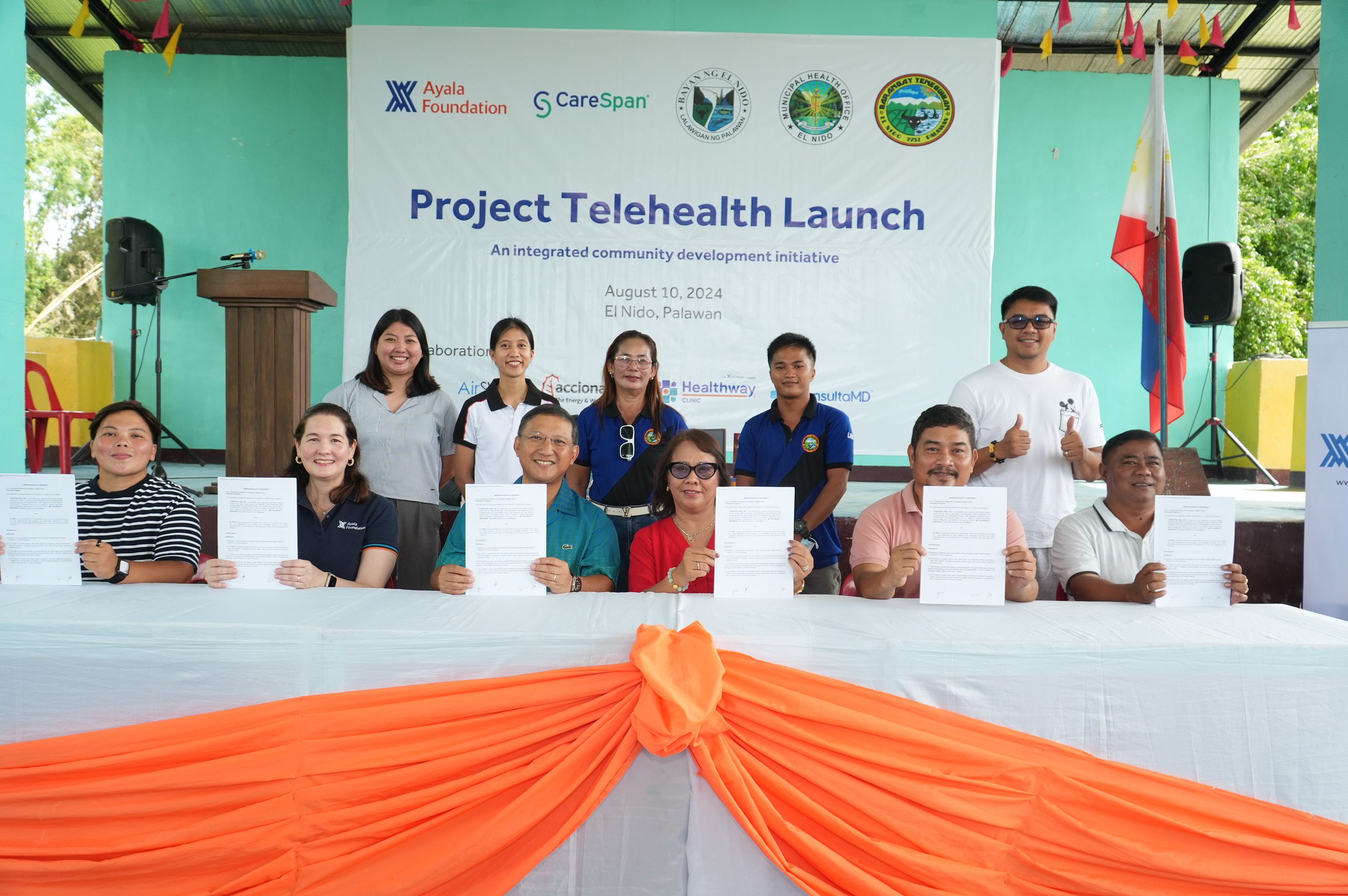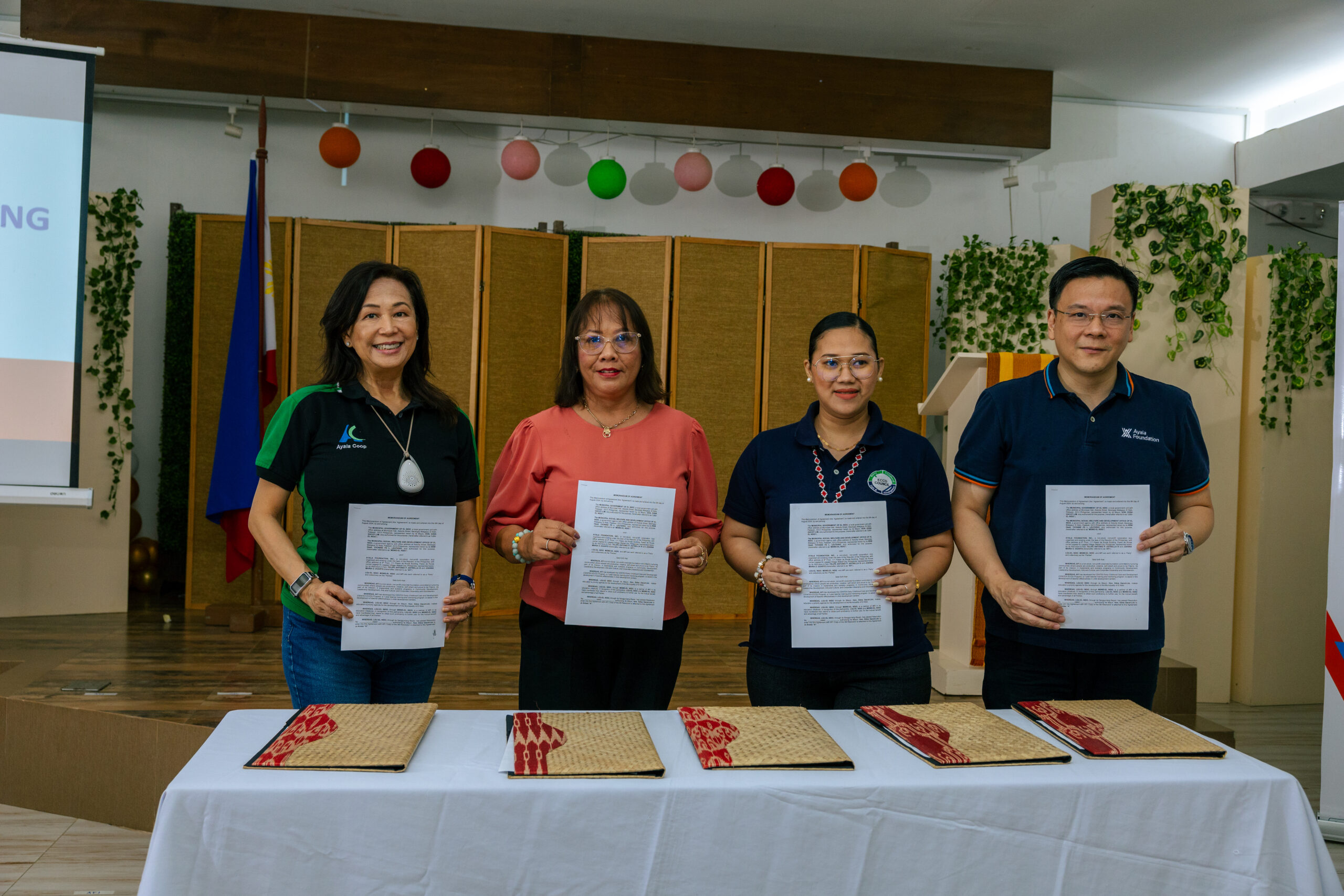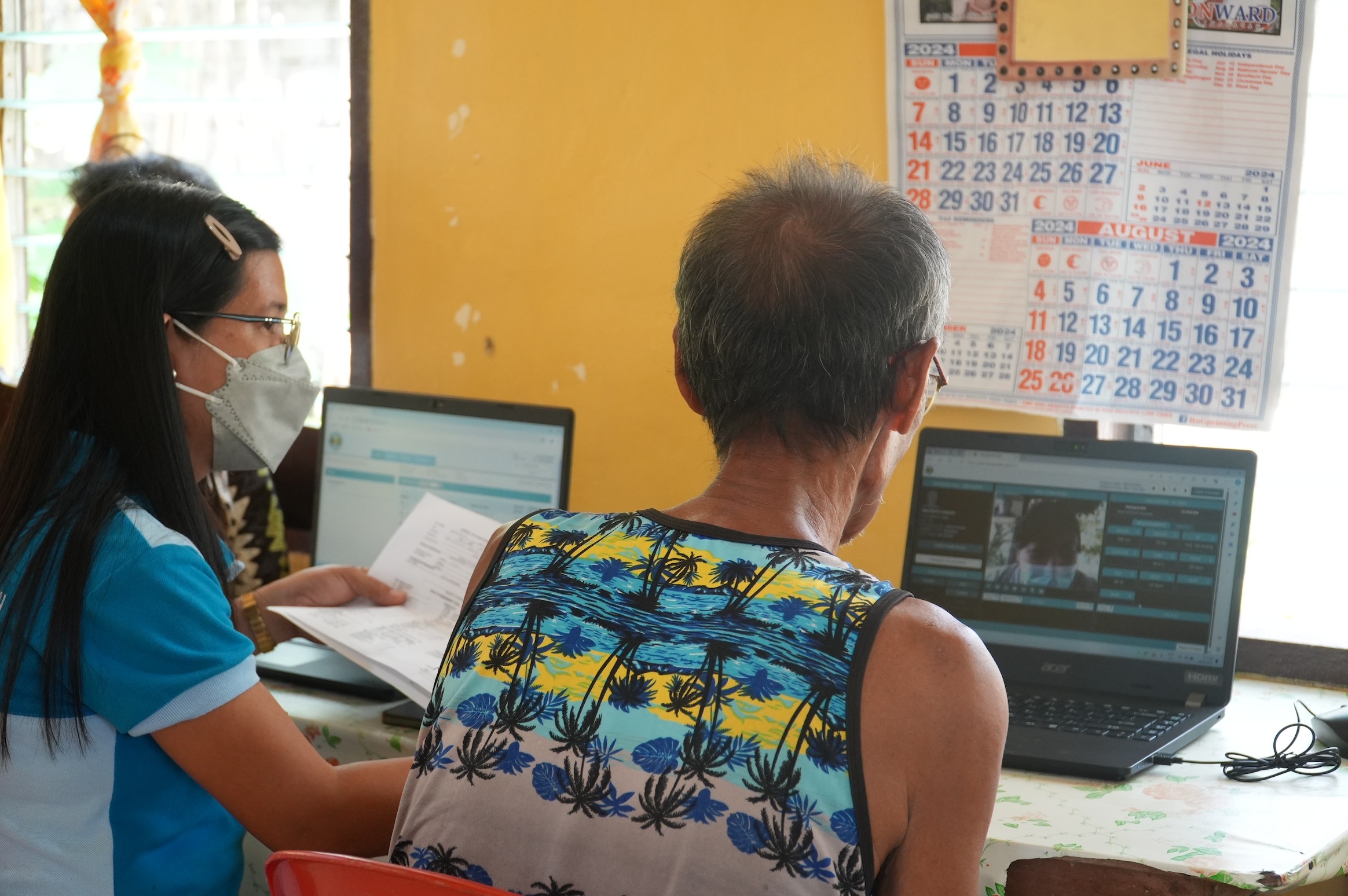In a bid to strengthen its community development initiatives in El Nido, Ayala Foundation recently launched its Early Childhood Care and Development (ECCD) and telehealth programs last August 9 and 10, in collaboration with key partners.
Mayor Edna Gacot-Lim of El Nido expressed her gratitude for the collaborative efforts that made the projects possible. “We are very thankful to our partners for their continued support in addressing the challenges our community faces. Through this collaboration, we are able to improve our efforts in both education and healthcare, ensuring that even our most remote areas have access to essential services.”

Ayala Foundation, CareSpan Asia, and the municipal government of El Nido ink the agreement to launch Project Telehealth in Barangay Teneguiban. Present at the signing ceremony were (L-R, seated) CareSpan Account Development Head Kris Lopez, AFI Senior Director for Community Development Joanna Duarte, CareSpan President Dan Reyes, El Nido Mayor Edna Gacot-Lim, Sangguniang Bayan Committee on Health Chairman Ernesto Lajallab, and SB Cyril Zumarraga. The ceremony was witnessed by (L-R, standing) Municipal Health Office representative Dr. Hannah Kikuchi, acciona.org Project Manager Amanda Bacani, Brgy. Teneguiban Head of Committee on Health Helen Ramilo, Brgy. Teneguiban Councilor John Bryan Fuentes, and SB JR Gabarra.
The programs are part of the foundation’s ongoing commitment to fostering partnerships that deliver integrated solutions to help uplift its communities.
“We are honored to continue our decade-long partnership with El Nido, which reflects our commitment to nurturing partnerships towards shared prosperity, one thriving community at a time,” said Ayala Foundation President Tony Lambino.
Bridging the education gap
Recognizing the critical role that early childhood development plays in shaping future life outcomes, Ayala Foundation aims to help level the playing field for children from disadvantaged backgrounds
On August 9, Ayala Foundation inked a Memorandum of Agreement with Ayala Multi-Purpose Cooperative (AMPC), the local government of El Nido, and the Municipal Social Welfare and Development (MSWD) to implement its Center of Excellence (CENTEX) ECCD program. CENTEX aims to support the local ECCD program by providing teacher training and mentoring, parent engagement sessions, and learning resources to benefit 20 child development centers in 13 El Nido barangays.
Citing the recent report of the Second Congressional Commission on Education, which highlighted the importance of quality education and the need for well-trained professionals in ECCD, Lambino thanked the local government, MSWD, and program sponsor AMPC for their shared commitment to enhancing education standards and practices.
“We firmly believe that education is the most valuable and sustainable gift we can offer to individuals and communities,” said AMPC General Manager Pinky Picache.

Ayala Foundation (AFI) and Ayala Multi-Purpose Cooperative (AMPC) sign an agreement with the municipal government of El Nido to launch the CENTEX ECCD program. (L-R) AMPC General Manager Pinky Picache, El Nido Mayor Edna Gacot-Lim, MSWD Head Yvonnie Fe Leuterio, and AFI President Tony Lambino.
Bringing healthcare to remote communities
On August 11, Ayala Foundation, CareSpan Asia, and the municipal government of El Nido formally kicked off a telehealth program in Barangay Teneguiban. The initiative is set to extend the reach of LGU doctors and bring telehealth services to hard-to-reach locations starting with Teneguiban and its farthest sitio, Diapila.
“When I founded CareSpan, our mission and our vision was to provide access to quality healthcare to anyone, anywhere, at any time through our platform. That has been proven time and time again, especially when we visited Sitio Diapila,” said CareSpan President Dan Reyes, reflecting on seeing telehealth in action at the barangay health center.
Teneguiban, with the largest population among El Nido’s 18 barangays, is classified as a geographically isolated and disadvantaged area (GIDA). Through the CareSpan platform, patients in these areas can access free telehealth services at their barangay health centers under the Universal Healthcare Act (RA 1123).
Following the agreement signing, laptops, tablets, and satellite internet provided by CareSpan and medical equipment funded by AirSwift’s RunLIO event were turned over to the municipal health office to support the project.
Representing the municipal health office, Dr. Hannah Kikuchi shared that she initially believed telehealth was anti-poor, citing that such platforms required access to resources and infrastructure, which is especially challenging for GIDAs.
“With our partners in health, the impossible was made possible,” Dr. Kikuchi said during the launch, sharing her experiences as one of the participating doctors during the telehealth project’s test run. “Walang kuryente, nag-provide sila ng solar. Walang internet, nagbigay sila ng satellite internet. Walang computer, walang cellphone, nagbigay sila ng tablet at ng laptop and not only that, kinapacitate nila ang aming staffers. Dun po natin makikita that health is multisectoral.”
(“There was no electricity, they provided solar power. There was no internet, they provided satellite internet. There were no computers and no cell phones, they provided tablets and laptops, and not only that, but they also capacitated our staffers. Through this project, we see that health is multisectoral.)

Healthcare is made more accessible for residents of Sitio Diapila.
Project Telehealth is the next phase of Ayala Foundation’s integrated development programs in El Nido. Last year, in collaboration with acciona.org, the foundation launched Light at Home Palawan to bring solar power to 1,200 households and 20 community centers in off-grid areas. Light at Home has also powered the tablets used in the ProFuturo digital education program, enabling public elementary school teachers to enhance their student’s learning experiences. Over the past decade, Ayala Foundation, with the help of its partners, has also supported various community enterprises in El Nido to foster sustainable development.

